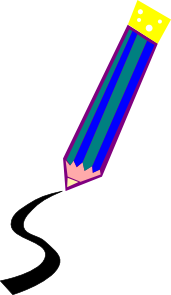Overview: Opposite Writing Errors
Both sentence fragments and run-on sentences are writing errors that occur when writers aren’t careful about punctuation. Although they may seem totally different, they are really just opposites of the same type of error. It is important to know when one sentence ends and a new one begins.
What Is a Sentence?
A sentence has a subject and verb, as well as expresses a complete thought. There is both action and something performing the action. A sentence is finished, even if it doesn’t quite say what the writer wants. It will end with punctuation marks such as periods, exclamation marks, or question marks. It is easier to understand what the author means, because the sentence expresses a complete thought.
A Sentence Fragment Is Only Part of the Thought
Most students (and many writers) have the experience of having one or two of their “sentences” in a paper marked “This is not a sentence”, or just “not a sentence.” Some fragments leave out the verb, so nothing is happening , or they leave out the subject, so nothing is performing the action. Those may be underlined in green on the word processor, as “fragment (consider revising), but that’s nothing to count on. If the sentence can’t stand alone, even if it starts with a capital letter and ends with a period, exclamation mark, or question mark, it might be a fragment.
Watch Out For Dependent Clauses
A more sneaky form of sentence fragments begin with relative pronouns or conjunctions that signal subordinate clauses. These fragments have a subject and a verb, but they also begin with a word that turns the sentence into a phrase that can’t stand alone. For example, a simple sentence like “The car ran the stop sign” becomes a dependent clause by adding a word such as “when” or “because.” A fragment like “Because the car ran the stop sign” makes the reader wonder, “What happened?” It is no longer a complete thought.
Run-On Sentences
Run-on sentences usually come in two types; those that go on and on without punctuation, and those that have punctuation, but it isn’t enough of the right kind. Run-on sentences happen because the writer is trying too hard to get too many ideas in the same sentence. They are also hard to read, because the reader doesn’t have a place to stop and breathe. The quickest way to catch run-ons is to read the sentences out loud. Then clauses can be separated by conjunctions, or made into dependent clauses. In addition, the writer can stop and make the run-on into two (or even three) separate, complete sentences.
Interested in English tutoring services? Learn more about how we are assisting thousands of students each academic year.
SchoolTutoring Academy is the premier educational services company for K-12 and college students. We offer tutoring programs for students in K-12, AP classes, and college. To learn more about how we help parents and students in Goffstown, NH visit: Tutoring in Goffstown, NH


